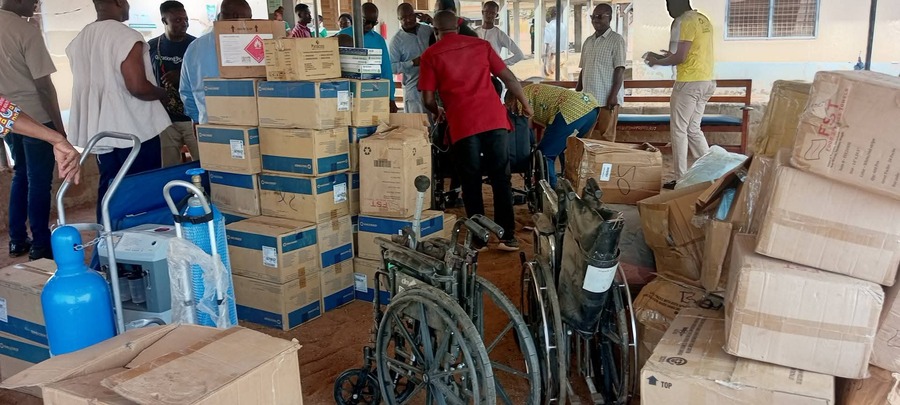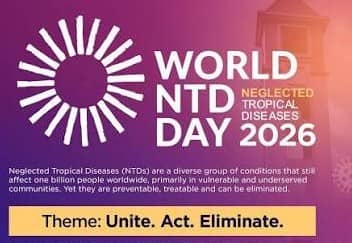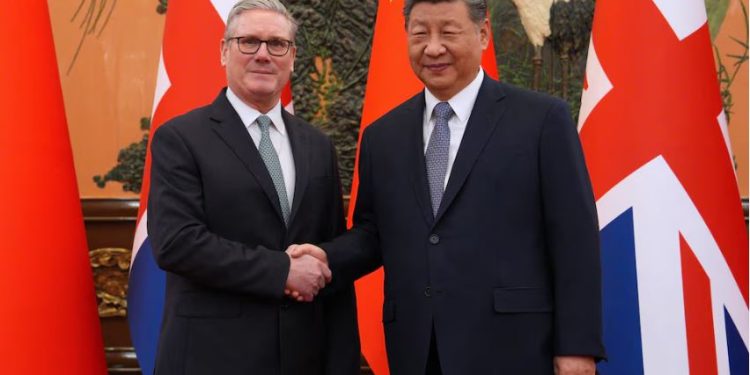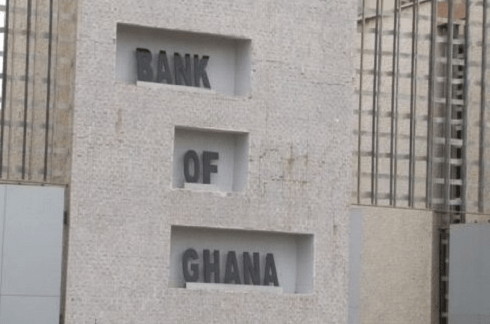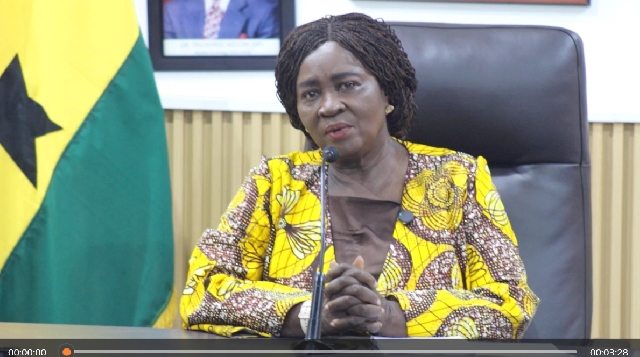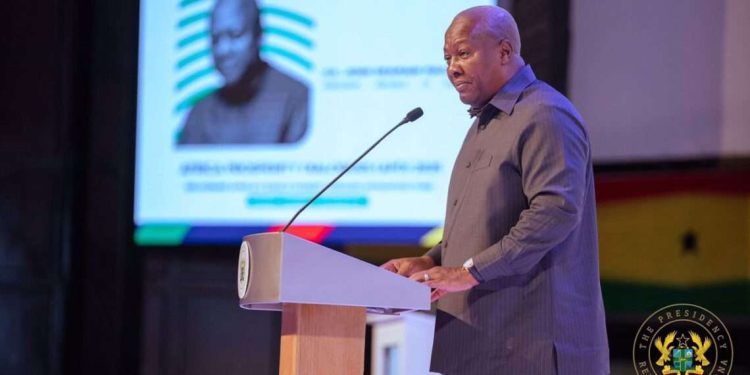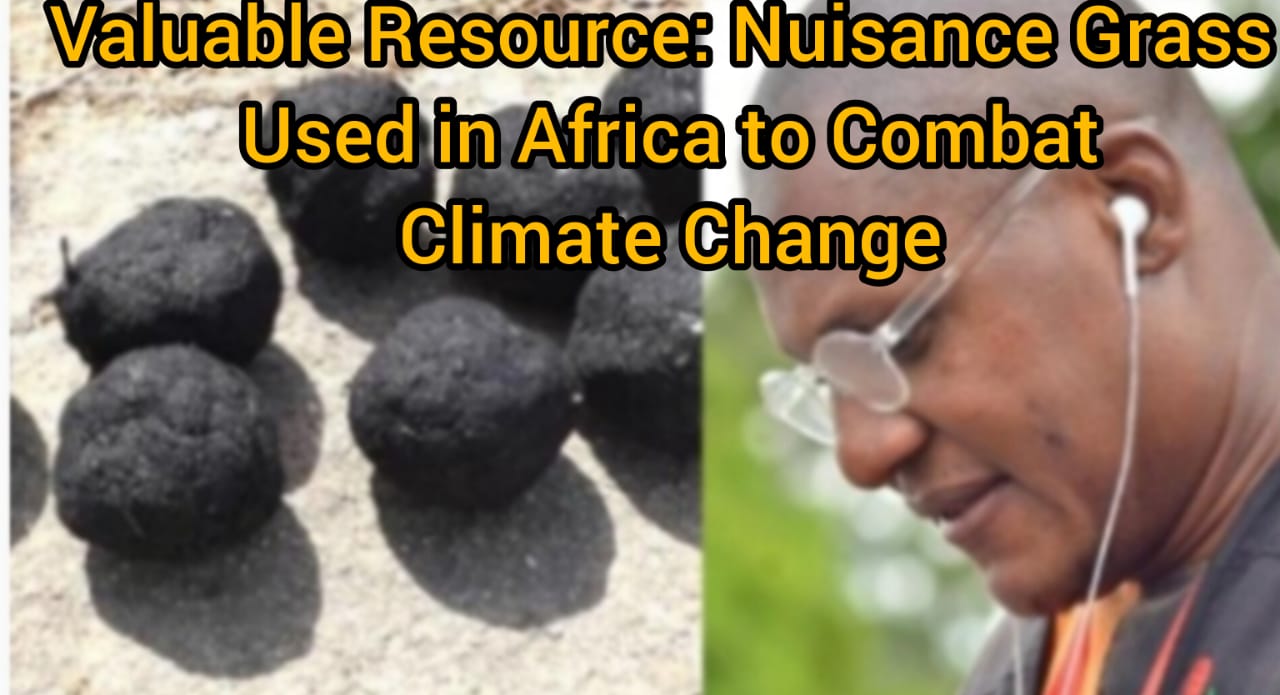Grass, often viewed as a nuisance in Africa due to its persistent growth and tendency to invade fields and gardens, may soon be recognized for its value as a raw material. While it may seem surprising, grass has the potential to become a valuable resource, with opportunities for economic development and innovation. Apexnewsgh reports.

In recent years, researchers and entrepreneurs have been exploring the possibilities of utilizing grass for a variety of purposes. From turning it into biofuels to using it as a sustainable building material, there are numerous ways in which grass can be harnessed for its beneficial properties. This shift in perspective is transforming the way we view this seemingly ordinary plant.

One of the key advantages of utilizing grass is its abundance in Africa. With vast swathes of land covered in grass, there is a huge potential for harnessing this resource for economic gain.
By finding innovative ways to process and utilize grass, countries in Africa can create new industries and job opportunities, contributing to overall economic growth.

Meanwhile, utilizing grass as a raw material offers environmental benefits. By promoting sustainable practices for grass harvesting and processing, we can reduce our reliance on non-renewable resources and lower carbon emissions. This not only benefits the environment but also contributes to the fight against climate change.
Increasing LPG Prices Drive Citizens to Wood Fuels in Africa
In a recent investigation by Ngamegbulam Chidozie Stephen of Apexnewsgh.com, a troubling trend has emerged in which citizens are increasingly turning to wood fuel products such as firewood and charcoal due to the rising cost of Liquefied Petroleum Gas (LPG). This shift is primarily affecting the lower class of citizens, who are finding it increasingly difficult to afford the higher prices of LPG.
The price of LPG has been steadily increasing, making it a less viable option for many households, particularly those with limited financial resources. As a result, individuals are resorting to traditional wood fuels as a more affordable alternative for cooking and heating purposes.
While the use of wood fuels may provide temporary relief for those struggling to afford LPG, it also comes with significant drawbacks. The reliance on wood fuels contributes to deforestation and environmental degradation, leading to long-term negative impacts on the environment and public health.
It is imperative for policymakers and stakeholders to address the underlying issues driving the increase in LPG prices and provide affordable alternatives for citizens. Promoting sustainable practices and investing in clean energy solutions can help mitigate the reliance on wood fuels and reduce the negative impacts on the environment.
As citizens in Africa grapple with the rising cost of LPG, the need for accessible and affordable energy solutions becomes more urgent. By addressing the root causes of the issue and promoting sustainable energy sources, we can ensure a more sustainable future for all.
The Environmental Impact of Charcoal Production on Economic Trees

Charcoal is a key component in our cooking activities, but the continued felling of economic trees such as rosewood and shea trees for charcoal production raises an important question. These trees not only contribute significantly to the economy but also provide vital benefits to citizens as especially the vulnerable.

Meanwhile, in addition to their economic value, the felling of these trees for charcoal production poses a significant threat to the environment. In an era of climate change, the loss of these trees can have devastating effects on our ecosystem and overall well-being as a society.
It is important to consider the long-term consequences of prioritizing charcoal production over the preservation of valuable economic trees. Sustainable practices must be implemented to ensure that we can continue to enjoy the benefits of these trees without causing harm to our environment. It is essential that we strike a balance between our short-term needs for charcoal and the long-term health of our planet.
Grass-Charcoal Innovation: A Hidden Gold in the Open for Africa
In a groundbreaking development, Professor David Millar, the President of Miller Institute for Transdisciplinary and Development Studies in Ghana, has introduced a new innovation that could potentially revolutionize the way people view grass as a commodity in Africa.

Described as a “Hidden Gold in the Open,” grass has now emerged as a solution to various challenges including bushfire burning, deforestation caused by the felling of economic trees, and the creation of job opportunities, especially in rural areas.
The concept of Grass-Charcoal, a charcoal product made from grass briquettes, is poised to become a viable alternative to wood fuels. As awareness of this innovation spreads, more people are expected to recognize the economic potential that nuisance grass holds.

The process of producing grass charcoal is less labor-intensive and environmentally harmful compared to traditional methods of charcoal production, making it an attractive option for both producers and consumers.
Professor Millar’s Grass-Charcoal innovation represents a significant opportunity for African countries to address unemployment, particularly in rural communities. By embracing this innovative approach, African leaders can support the creation of more job opportunities while simultaneously promoting sustainable practices that benefit both people and the environment.
The Grass-Charcoal innovation is indeed a “Hidden Gold in the Open” for Africa, waiting to be explored and utilized for the greater good.
Recommendation
Therefore, it is recommended that local governments, communities, and individuals work together to promote sustainable forestry practices, reforestation efforts, and alternative sources of fuel to reduce the reliance on charcoal production.
By taking action now, we can help protect our forests, wildlife, and future generations. Let us prioritize the preservation of our economic trees and work towards a more sustainable future for all.
Source: Apexnewsgh.com
Please contact Apexnewsgh.com on email apexnewsgh@gmail.com for your credible news publications. Contact: 0256336062

